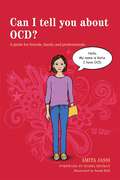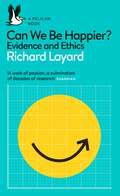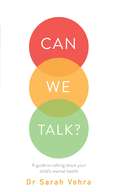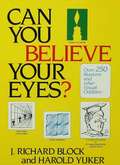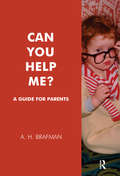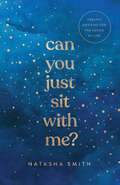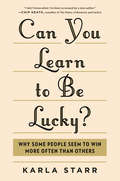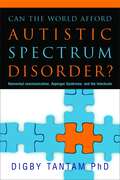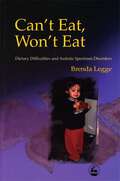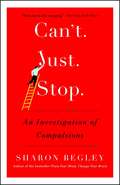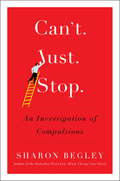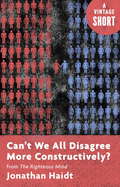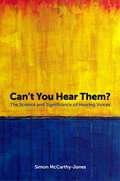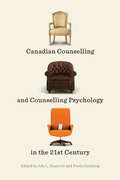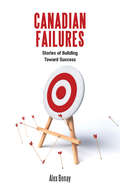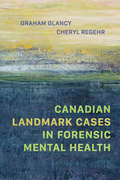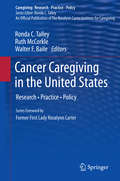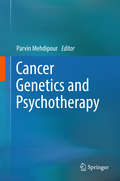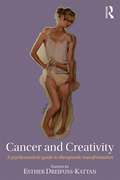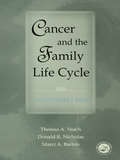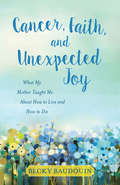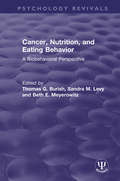- Table View
- List View
Can I tell you about OCD?: A guide for friends, family and professionals
by Isobel Heyman Amita Jassi Sarah HullMeet Katie - a teenager with Obsessive Compulsive Disorder (OCD). Katie invites readers to learn about OCD from her perspective, helping them to understand what it is, how her obsessions and compulsions affect her daily life, and how people around her can help. With illustrations throughout, this will be an ideal introduction to OCD for both young people and older readers. It shows family, friends and teachers how they can support someone with the condition and will be an excellent way to start a conversation about OCD, in the classroom or at home.
Can We Be Happier?: Evidence and Ethics (Pelican Books)
by Richard Layard George WardFrom the bestselling author of Happiness and co-editor of the annual World Happiness ReportMost people now realize that economic growth, however desirable, will not solve all our problems. Instead, we need a philosophy and a science which encompasses a much fuller range of human need and experience.This book argues that the goal for a society must be the greatest possible all-round happiness, and shows how each of us can become more effective creators of happiness, both as citizens and in our own organizations.Written with Richard Layard's characteristic clarity, it provides hard evidence that increasing happiness is the right aim, and that it can be achieved. Its language is simple, its evidence impressive, its effect inspiring.'In this book 'Can We Be Happier?' which is part of Richard Layard's excellent, ongoing exploration of what happiness is and how it can be achieved, he provides evidence that if you have peace of mind and are full of joy, your health will be good, your family will be happy and that happiness will affect the atmosphere of the community in which you live.' The Dalai Lama
Can We Talk?: About Mental Health in Children and Young People
by Sarah Vohra'Parental anxiety is natural, but if you think something's wrong - trust your instincts. Talk to your child and seek professional help sooner, rather than later'. - Dr Sarah VohraHow do you know what to worry about - and what not to worry about?How do you keep the lines of communication open?When - and how - should you seek professional help?In Can We Talk? consultant child psychiatrist Dr Sarah Vohra shares an easy-to-use traffic light system that will help you to navigate tricky early conversations. Whether your child is 6 or 16, the expert advice and practical tools in this book cover such key concerns as sleep, low mood, anxiety and self-harm. This updated edition also includes a new chapter on the impact of social media on your child's wellbeing, with strategies to help you support them in a world where Instagram and Snapchat multiply the pressure to be perfect at all levels and all times.Whether your child is a preschooler or a teenager, this is an invaluable resource for anyone worried about a young person's mental health.
Can We Talk?: About Mental Health in Children and Young People
by Sarah Vohra'Parental anxiety is natural, but if you think something's wrong - trust your instincts. Talk to your child and seek professional help sooner, rather than later'. - Dr Sarah VohraHow do you know what to worry about - and what not to worry about?How do you keep the lines of communication open?When - and how - should you seek professional help?In Can We Talk? consultant child psychiatrist Dr Sarah Vohra shares an easy-to-use traffic light system that will help you to navigate tricky early conversations. Whether your child is 6 or 16, the expert advice and practical tools in this book cover such key concerns as sleep, low mood, anxiety and self-harm. This updated edition also includes a new chapter on the impact of social media on your child's wellbeing, with strategies to help you support them in a world where Instagram and Snapchat multiply the pressure to be perfect at all levels and all times.Whether your child is a preschooler or a teenager, this is an invaluable resource for anyone worried about a young person's mental health.
Can You Believe Your Eyes?: Over 250 Illusions And Other Visual Oddities
by J. Richard Block Harold YukerPublished in 1989, Can You Believe Your Eyes? is a valuable contribution to the field of Psychotherapy.
Can You Help Me?: A Guide for Parents
by A.H. BrafmanThis book is based on common questions that parents have about their children and their relationships with the world at large. Drawing from his extensive experience as a child psychoanalyst (and as a father), Dr Brafman offers his thoughts on widespread problems faced by parents in an innovative way: he focuses on how the child perceives the situation and not on their resultant behaviour. He also steers away from providing clear-cut answers; there are no set rules for raising children. Instead Dr Brafman discusses each question, using real-life examples and providing insights that will help the parent decide what is best for their individual child.
Can You Just Sit with Me?: Healthy Grieving for the Losses of Life
by Natasha Smith"Why are you still sad about that?" It takes time and space to grieve well, but often our culture doesn't afford us these things. Drawing from her own experience with grief, Natasha Smith invites us into a reflection on what it means to grieve and how to cling to hope even in our darkest moments. Instead of providing quick-fix solutions, this book creates space for us to take time to just sit and grieve, learn, and heal in healthy ways. In Can You Just Sit with Me? Smith provides personal stories, biblical reflections, relevant research, practical tools, and prayers that point us to God, who always sits with us in our grief. Whether we are grieving a loss or supporting a friend who is grieving, this book reminds us that every loss is worthy of the space and grace to grieve.
Can You Learn to Be Lucky?: Why Some People Seem to Win More Often Than Others
by Karla Starr“I don't know when I've been so wowed by a new author” –Chip Health, co-author of The Power of Moments and SwitchA talented journalist reveals the hidden patterns behind what we call "luck" -- and shows us how we can all improve outcomes despite life’s inevitable randomness."Do you believe in luck?" is a polarizing question, one you might ask on a first date. Some of us believe that we make our own luck. Others see inequality everywhere and think that everyone’s fate is at the whim of the cosmos. Karla Starr has a third answer: unlucky, "random" outcomes have predictable effects on our behavior that often make us act in self-defeating ways without even realizing it. In this groundbreaking book, Starr traces wealth, health, and happiness back to subconscious neurological processes, blind cultural assumptions, and tiny details you're in the habit of overlooking. Each chapter reveals how we can cultivate personal strengths to overcome life’s unlucky patterns. For instance:• Everyone has free access to that magic productivity app—motivation. The problem? It isn’t evenly distributed. What lucky accidents of history explain patterns behind why certain groups of people are more motivated in some situations than others? • If you look like an underperforming employee, your resume can't override the gut-level assumptions that a potential boss will make from your LinkedIn photo. How can we make sure that someone’s first impression is favorable?• Just as people use irrelevant traits to make assumptions about your intelligence, kindness, and trustworthiness, we also make inaccurate snap judgments. How do these judgments affect our interactions, and what should we assume about others to maximize our odds of having lucky encounters? We don’t always realize when the world's invisible biases work to our advantage or recognize how much of a role we play in our own lack of luck. By ending the guessing game about how luck works, Starr allows you to improve your fortunes while expending minimal effort.
Can the World Afford Autistic Spectrum Disorder?: Nonverbal Communication, Asperger Syndrome and the Interbrain
by Digby TantamThe world affords to most of us a web of subliminal nonverbal communication that regulates our minds, indicates whether our beliefs have, or have not, social approval, and generally guides us. People with autism do not seem to be influenced by these subliminal signals as much as others, and this results in the difficulties in social interaction that are so characteristic of all the autistic spectrum disorders. How is such nonverbal communication carried out, and why do people on the autism spectrum find it so difficult? What are the consequences of this for them, and how do these consequences affect their personality, self-awareness, and sense of place in the world? Digby Tantam explores current theories on nonverbal communication and how it shapes social behaviour, and the evidence for it being impaired in people with autism spectrum disorder (ASD). He shows how knowledge of this difference can be used to overcome some of the impairments in nonverbal communication in people with ASD, but also how acknowledging them can result in more positive development elsewhere. This groundbreaking book will be fascinating reading for anyone interested in communication, as well as people who have ASD themselves, their families, and all professionals working with people on the autism spectrum.
Can't Eat, Won't Eat: Dietary Difficulties and Autistic Spectrum Disorders
by Brenda LeggeFinding out that your child has Asperger's Syndrome or Autism can be devastating enough, but when you discover that he or she won't eat 99.9 per cent of all food and drink in the known universe, the fun really starts. This was the situation the author found herself in a decade ago when her son first took a dislike to milk, and then to virtually every other substance she attempted to feed him. Her book was written to reassure other parents that there are lots of people out there in the same boat, and to suggest practical methods of dealing with the problem. As well as drawing on her own experience, the author has spoken to parents, children, and professionals with first-hand knowledge of dietary difficulties, and their advice and comments form a key part of the book.
Can't Just Stop: An Investigation of Compulsions
by Sharon BegleyThe first book to examine the science behind both mild and extreme compulsive behavior—using fascinating case studies to understand its deeper meaning and reveal the truth about human compulsion.Whether shopping with military precision or hanging the tea towels just so, compulsion is something most of us have witnessed in daily life. But compulsions exist along a broad continuum, and at the opposite end of these mild forms exist life altering disorders. Sharon Begley’s meticulously researched book is the first of its kind to examine all of these behaviors—mild and extreme (OCD, hoarding, acquiring, exercise, even compulsions to do good)—together, as they should be, because while forms of compulsion may look incredibly different, these are actually all coping responses to varying degrees of anxiety. With a focus on personal stories of dozens of interviewees, Begley employs genuine compassion and gives meaningful context to their plight. Along the way she explores the role of compulsion in our fast paced culture, the brain science behind it, and strange manifestations of the behavior throughout history. Can’t Just Stop makes compulsion comprehensible and accessible, exploring how we can realistically grapple with it in ourselves and those we love.
Can't Just Stop: An Investigation of Compulsions
by Sharon BegleyHIGHLY COMMENDED for the British Medical Awards book prize for Popular Medicine'Filled with emotionally resonant stories, Can't Just Stop helps us understand not only the underpinnings of some forms of mental illness, but also the everyday worries that drive so much of our behaviour. A fascinating peek into the human mind in our age of anxiety.'David Kessler, author of Capture: Unraveling the Mystery of Mental Suffering Do you check your smartphone continuously for messages? Or perhaps do the weekly shop with military precision? Maybe you always ensure the cutlery is perfectly lined up on the table?Compulsion is something most of us have witnessed in daily life. But compulsions exist along a broad continuum, and at the opposite end of these mild forms are life-altering disorders.Sharon Begley's meticulously researched book is the first of its kind to examine the science behind both mild and extreme compulsive behaviour; using fascinating case studies to understand their deeper meaning and reveal the truth about human compulsion - that it is a coping response to varying degrees of anxiety.Through the personal stories of dozens of interviewees exhibiting behaviours such as OCD, hoarding, compulsive acquiring, exercise or even altruism, Begley employs genuine compassion and gives meaningful context to their plight. Along the way she explores the role of compulsion in our fast paced culture, the neuroscience behind it, and strange manifestations of the behaviour throughout history. Can't Just Stop makes compulsion comprehensible and accessible, exploring how we can realistically grapple with it in ourselves and in those we love.
Can't Talk, Want to Talk!
by Jo Levett Stephen StreetWhen outgoing Lily meets a little girl who is too afraid to talk in school or other places outside of her home, she befriends the silent girl, their friendship grows, and the silent girl feels comfortable enough to talk to her new friend. This beautifully illustrated story book is for children with selective mutism to see that they can make a friend like Lily. It is also a helpful tool for parents, friends and teachers of children with selective mutism to understand why these children are unable to talk in certain settings, and to explore some strategies that may help reduce their anxiety around speaking. Jo studied for a Masters Degree in Speech and Language Sciences and qualified as a Speech and Language Therapist at University College London in 2006. Since then she has worked with children in a range of home, clinic and educational settings and currently combines NHS and independent work.
Can't We All Disagree More Constructively?: from The Righteous Mind
by Jonathan HaidtA Vintage Shorts Selection As America descends deeper into polarization and paralysis, social psychologist Jonathan Haidt has done the seemingly impossible--he has explained the origins of morality, politics, and religion in a way that speaks to everyone on the political spectrum. Drawing on twenty-five years of groundbreaking research, Haidt shows why liberals, conservatives, and libertarians have such different intuitions about right and wrong, and why we need the insights of each if we are to flourish as a nation. Here is the key to understanding the miracle of human cooperation and the eternal curse of moralistic aggression, across the political divide and around the world. An ebook short.
Can't You Hear Them?: The Science and Significance of Hearing Voices
by Simon Mccarthy-JonesThe experience of 'hearing voices', once associated with lofty prophetic communications, has fallen low. Today, the experience is typically portrayed as an unambiguous harbinger of madness caused by a broken brain, an unbalanced mind, biology gone wild. Yet an alternative account, forged predominantly by people who hear voices themselves, argues that hearing voices is an understandable response to traumatic life-events. There is an urgent need to overcome the tensions between these two ways of understanding 'voice hearing'. Simon McCarthy-Jones considers neuroscience, genetics, religion, history, politics and not least the experiences of many voice hearers themselves. This enables him to challenge established and seemingly contradictory understandings and to create a joined-up explanation of voice hearing that is based on evidence rather than ideology.
Canadian Counselling and Counselling Psychology in the 21st Century
by Ada L. Sinacore Freda GinsbergCanadian counsellors and counselling psychologists have made significant advances in mental health services and the broader field of applied psychology, but much of the counselling and counselling psychology scholarship has been published outside of Canada, rendering it difficult to identify as distinctly Canadian. This path-breaking book highlights the work of Canadian counsellors and counselling psychologists and focuses on issues pertinent to practising in Canada. Key topics such as scientific issues, health, wellness, prevention, career psychology, assessment, training and supervision, and social justice and multiculturalism are explored in detail. Using a strength-based framework, each chapter attends to societal factors, diversity of methodological frameworks, and an analysis of the challenges and future directions for the disciplines. Providing a common voice for a diverse group of students and professionals, Canadian Counselling and Counselling Psychology in the 21st Century will be of interest to counsellor educators, faculty in counsellor and counselling psychology training programs, and counsellors interested in advancing their understanding of the current state of the field. Contributors include Kevin G. Alderson (University of Calgary), Nancy Arthur (University of Calgary), Bill Borgen (University of British Columbia), Marla Buchanan (University of British Columbia), Erin Buhr (Trinity Western University), Lee Butterfield (Adler School of Professional Psychology), Sharon Cairns (University of Calgary), Sandra Collins (Athabasca University), Jose Domene (University of New Brunswick), Marilyn Fitzpatrick (McGill University), Nick Gazzola (University of Ottawa), Freda Ginsberg (SUNY Plattsburgh), Liette Goyer (Universite Laval), Bryan Hiebert (University of Victoria), George Hurley (Memorial University of Newfoundland), Anusha Kassan (University of British Columbia), Patricia Keats (Simon Frazer University), Audrey Kinzel (University of Saskatoon), Vivian Lalande (University of Calgary, Sasha Lerner (McGill University), Anne Marshall (University of Victoria), Marv McDonald (Trinity Western University), Louise Overington (McGill University), Jane M. Oxenbury (Independent Practice), Sharon Robertson (University of Calgary), Ada L. Sinacore (McGill University), Suzanne L. Stewart (OISE, University of Toronto), and Jessica Van Vliet (University of Alberta).
Canadian Counselling and Counselling Psychology in the 21st Century
by Ada L. Sinacore Freda GinsbergCanadian counsellors and counselling psychologists have made significant advances in mental health services and the broader field of applied psychology, but much of the counselling and counselling psychology scholarship has been published outside of Canada, rendering it difficult to identify as distinctly Canadian. This path-breaking book highlights the work of Canadian counsellors and counselling psychologists and focuses on issues pertinent to practising in Canada. Key topics such as scientific issues, health, wellness, prevention, career psychology, assessment, training and supervision, and social justice and multiculturalism are explored in detail. Using a strength-based framework, each chapter attends to societal factors, diversity of methodological frameworks, and an analysis of the challenges and future directions for the disciplines. Providing a common voice for a diverse group of students and professionals, Canadian Counselling and Counselling Psychology in the 21st Century will be of interest to counsellor educators, faculty in counsellor and counselling psychology training programs, and counsellors interested in advancing their understanding of the current state of the field. Contributors include Kevin G. Alderson (University of Calgary), Nancy Arthur (University of Calgary), Bill Borgen (University of British Columbia), Marla Buchanan (University of British Columbia), Erin Buhr (Trinity Western University), Lee Butterfield (Adler School of Professional Psychology), Sharon Cairns (University of Calgary), Sandra Collins (Athabasca University), Jose Domene (University of New Brunswick), Marilyn Fitzpatrick (McGill University), Nick Gazzola (University of Ottawa), Freda Ginsberg (SUNY Plattsburgh), Liette Goyer (Universite Laval), Bryan Hiebert (University of Victoria), George Hurley (Memorial University of Newfoundland), Anusha Kassan (University of British Columbia), Patricia Keats (Simon Frazer University), Audrey Kinzel (University of Saskatoon), Vivian Lalande (University of Calgary, Sasha Lerner (McGill University), Anne Marshall (University of Victoria), Marv McDonald (Trinity Western University), Louise Overington (McGill University), Jane M. Oxenbury (Independent Practice), Sharon Robertson (University of Calgary), Ada L. Sinacore (McGill University), Suzanne L. Stewart (OISE, University of Toronto), and Jessica Van Vliet (University of Alberta).
Canadian Failures: Stories of Building Toward Success
by Alex BenayThe Hill Times: Best Books of 2017 Successful Canadians write about failure, and how it got them where they are today. What does it mean to fail? To some of the most successful Canadians, it was a rite of passage, a stepping stone to greater things, or even a brilliant source of inspiration. Olympic golds, successful businesses, pioneering medical advances — all came about after a series of missteps and countless attempts. Canadian Failures gathers ten experts from the private, public, and not-for-profit sectors and academia, all of whom have grappled with failures and success throughout their lives. Their powerful argument: that Canada, and Canadians, must be willing to learn from failure if we hope to succeed. With Chapters By … astronaut Robert Thirsk Olympic gold medalist, wrestler Erica Wiebe Chair of OpenText and of the National Research Council, Tom Jenkins co-founder of the Just for Laughs comedy festival, Andy Nulman … and others at the top of their fields.
Canadian Landmark Cases in Forensic Mental Health (G - Reference,information And Interdisciplinary Subjects Ser.)
by Graham Glancy Cheryl RegehrHigh profile legal cases involving individuals with mental health challenges often involve complex issues that confront previous decisions of the courts, influence or change existing social policies, and ultimately have a profound impact on the daily practice of mental health professionals and the lives of their patients. Providing in-depth context into milestone cases in forensic mental health, this book addresses issues such as the confidentiality of mental health records, criminal responsibility, fitness to stand trial, the right of individuals to refuse mental health treatment, and the duty of mental health practitioners to warn and protect individuals who may be at risk of harm at the hands of a patient. The authors explore the social and political context in which these cases occurred, incorporating court decisions, contemporaneous media articles, and legal reviews in the analysis. Graham Glancy and Cheryl Regehr, who are experts in the field of Forensic Psychiatry, draw upon their own practice, in addition to scholarly literature, to describe the impact of the decisions rendered by the courts in the area of mental health, and offer practical guidelines for professionals working at the interface of law and mental health.
Cancer Caregiving in the United States: Research, Practice, Policy (Caregiving: Research • Practice • Policy)
by Ronda C. Talley Walter F. Baile Ruth MccorkleDespite advances in detection and treatment, cancer remains a source of pain and distress to patients and of complex challenges to the loved ones caring for them. The trend toward shorter hospital stays in particular has increased the physical, psychological, and financial burden on caregivers, often leading to adverse effects on patients. Cancer Caregiving in the United States illuminates these complex concerns with authoritative detail. This wide-ranging volume provides a comprehensive survey of cancer-related issues, including those affecting the care triad (patients-family members- professionals) and quality of care as well as the numerous physical, emotional, and financial challenges that caregivers may need to confront. Sources of caregiver difficulty at each stage of the disease, from diagnosis to end of life, are explored. Each chapter analyzes its topic in terms of practice, research, education, and policy, providing a wealth of literature reviews, assessment and care models, interventions, and recommendations for future study and practice. Coverage includes: Caregiving issues for cancer patients with long-term, short-term, and intermittent needs.Family caregivers as members of the treatment team.The impact of health disparities on caregivers.Cancer care policy and advocacy.End-of-life issues for cancer caregivers.Legal, financial, and ethical issues. Cancer Caregiving in the United States is a core reference for researchers, professionals/scientist-practitioners, and graduate students in such caregiving fields as clinical psychology, social work, nursing, public health and medicine, social policy, and educational policy.
Cancer Genetics and Psychotherapy
by Parvin MehdipourThe aim of this book is to provide the readers with the most comprehensive and latest accounts of research and development in this field by emphasizing on the manner of relation between doctors and cancer patients in direction of improving the patients' style of life. This book, partly, will deal with psychotherapy by considering cancer patients, benefits, hazards and also social impacts including life style. The social supports as the key and influential paradigms will be challenged as a comparative insight by considering the global unity in order to provide a reasonable model to improve the interaction between cancer and psychological nest. In this book, the real stories of cancer patient will be also provided. The initial insight of sections includes: 1) Brief classifications and key points of clinical and histopatological aspects of each organ. 2) Brief view of genetic alterations in each organ. 3) Therapeutic aspects. 4) Brief classifications and key points of Psychology in cancer. 5) The interactions of clinical aspects with psychological field.
Cancer and Creativity: A Psychoanalytic Guide to Therapeutic Transformation
by Esther Dreifuss-KattanCancer and Creativity is a dialogue between accounts by cancer patients and survivors and a more clinical consideration and theoretical discussion from a psychoanalytic point of view of using creativity in coping with serious illness. The contributions featured demonstrate the power of creative expression as a tool for dealing with somatic, chronic and potentially life-threatening illnesses, giving patients a way of expressing and managing their individual cancer journeys and its attendant emotional sequelae. Ten artist-patients and survivors, who were involved in several long-term art therapy groups, give accounts of their experiences with cancer and with their support group, where they create paintings, embroidery, digital photography, comic books, maps and other works to express their experiences of being diagnosed and treated for cancer. The contributors describe their symptoms and their relationships to physicians and family members in words and visual representations. The book also addresses the experience of the public when they are confronted with art by cancer patients. Dreifuss-Kattan's own work as a psychoanalyst and art therapist informs her approach to the art space as what Winnicott calls a "transitional space," influenced by both the personal psychological experience and the physical environment. Dreifuss-Kattan closes her discussion with a reflection on terminal cancer care and the complex transferential and countertransferential relationship between patient and therapist. The book ends with a practical guide for both therapy groups, as well as individuals at home, to creatively address their experiences with cancer and its treatments. Cancer and Creativity will be of great interest to psychoanalysts, psychoanalytic psychotherapists, psychooncologists and art therapists, as well as health professionals working in oncology and in palliative care.
Cancer and the Family Life Cycle: A Practitioner's Guide
by Theresa A. Veach Donald R. Nicholas Marci A. BartonThis book uses current psychosocial literature in combination with empirical research and clinical accounts of family adaptation to help professionals and families cope with the impact of cancer. It is broad in scope and includes families in any life cycle (i.e. single adults, children, adolescents, and later life). This book, with its solid theoretical foundation, will be especially beneficial to any professional who is helping a family to adapt to cancer.
Cancer, Faith, and Unexpected Joy: What My Mother Taught Me About How to Live and How to Die
by Ellen Schuknecht Becky BaudouinA memoir equipping readers to face death from a Christian perspective"I've taught you how to live; now I want to teach you how to die. You don't have to be afraid."When Becky Baudouin’s mother spoke those words to her, they weren't said lightly. Her mother had just been told she had an inoperable tumor and there was no hope for a longer life. There was, however, assurance of everlasting life to come.In Cancer, Faith, and Unexpected Joy Baudouin shares her insights on fear, loss, and grief. These honest insights are applicable to everyone's story, not just her own--and extend real comfort to every reader. Questions for personal reflection or group discussion help both those who are losing a loved one and those who are facing death, and her story reveals that God is the only source for a spirit's true healing.For anyone living with the tension of wanting to hold on yet needing to let go, Cancer, Faith, and Unexpected Joy demonstrates a powerful and profound love.
Cancer, Nutrition, and Eating Behavior: A Biobehavioral Perspective (Psychology Revivals)
by Thomas G. BurishThe majority of cancer-related deaths are associated with nutritional problems. The major role that nutrition and diet play in the development and course of cancer had only been recently appreciated, and relatively little had been written on the topic in general. A critical component of nutrition and diet is eating behavior. Originally published in 1985, the purpose of this book was to meet the needs of both the clinician and the researcher by bringing together data and theory about nutrition and cancer from several disciplines, as considered from a biobehavioral perspective. The first chapter of the book provides an overview of the purposes and organization of the volume. The rest is divided into 3 parts. Part 1 focuses on basic research concerned with the nature and development of taste aversions and taste preferences in human and animals. Part 2 applies the basic processes reviews in the first part to the cancer area, focusing on eating and nutritional problems related to both tumor development and to learned processes that develop as a result of being exposed to radiotherapy and chemotherapy treatments. Part 3 focuses on identifying and evaluating intervention strategies for improving the nutritional status of people with cancer or at high risk for developing cancer.
